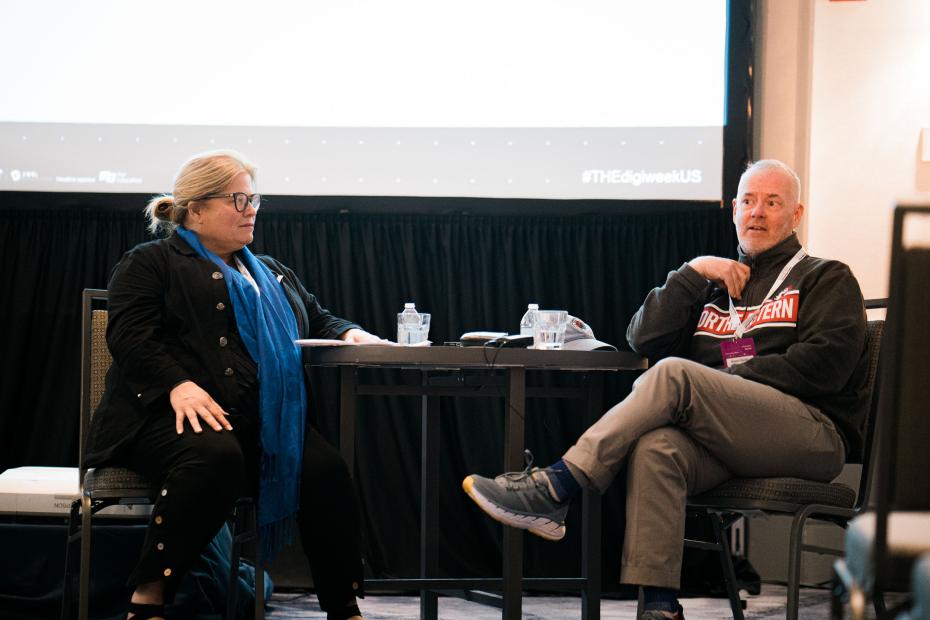Money has long been a stressor for students, but in recent years the “starving student” stereotype has become an even harsher reality.
At the University of Leeds, financial support is a top priority. Services include our Plus Programme for students from under-represented backgrounds, a range of funding opportunities including scholarships and bursaries, and on-campus interventions such as low-cost meals and free period products.
However, with rising costs and the lasting economic impact of Covid-19, higher education institutions must do more than offer support. We also need great communications to get students to engage and, better yet, to manage their money effectively.
In the midst of the cost-of-living crisis, from October 2022 to February 2023, we partnered with students on a finance-focused campaign, successfully equipping them to budget, save, find paid work and access support. And with our five rules, you can make money management content that matters to students too.
1. Gain meaningful insight
With topics like money management, good audience insight is the difference between empowering students and sounding like an out-of-touch institution. Make sure you understand who you’re talking to, what they know, their challenges and interests.
Not only does audience insight help you hone in on high-value tactics that get you to your target outcomes more efficiently, but it also gives you the data you need to have difficult conversations. There will inevitably be a clash between what your institution wants to say and what students need to hear – audience insight is key to bridging this gap.
Tips:
- Use multiple channels to hear from different demographics
- Pair traditional methods such as surveys and focus groups with interactive approaches including polls, quizzes and online Q&As
- Ask student support teams to verify common questions and concerns
- Check back regularly. What matters to students in September might not in January.
2. Tap into the student experience
Instead of expecting students to develop a sudden interest in budgeting or waiting for them to fall into financial hardship, use your insight to create content that’s relevant to their day-to-day lives.
For example, food-related content performs well on our channels, and we know that students spend loads on takeaways. Instead of simply pointing out annual costs and telling them to cut back, we created content that would help students make better financial decisions. This included a round-up of top cheap eats near campus, student reviews of new campus meal deals, a guide to batch cooking and more.
Tips:
- Tap into topics students care about
- Ensure content aligns with seasonal activities and student priorities.
3. Respect the student voice
How can you educate without sounding patronising when your audience includes fresh-faced 18-year-olds just learning to manage their money alongside mature students with plenty of financial know-how?
Students already get enough lectures, so let them do the talking. Student voice is a powerful tool that adds authenticity, makes content more relatable and boosts engagement. Wherever possible, empower students to deliver messages for you through blogs, videos, social media content and testimonials. Even when students can’t be the face or voice of your content, there are still ways to get them involved. For example, get them proofing content before it’s published or testing concepts and ideas.
Tips:
- Include diverse perspectives
- Engage students in every stage and pay for their expertise
- Segment for different demographics.
4. Cut through the noise
With overflowing inboxes and looming deadlines, standing out is crucial to capture student interest. That doesn’t mean you need to do big, flashy things. Instead, pair your insight with creativity to cut through the noise.
- Creating safe spaces for students to talk about financial difficulties
- Spotlight: Helping students through the cost-of-living crisis
- We must remove technology worries from the student cost-of-living crisis
For example, Student Money Week involved a money tree: a real tree in our student union – for students to hang money-saving tips on in exchange for a free meal voucher. The activity caught people’s attention (a new tree appearing in the student union is hard to miss), helped us get money-saving tips from students to use in future content and raised awareness of new low-cost meals.
We also held an online recipe contest, challenging students to share their favourite low-cost meal and the story behind it for the chance to win a week’s living expenses. We generated more than 80 entries in two weeks and used online voting to direct thousands of students to financial support.
Tips:
- Trust your audience insight, and don’t overlook small ideas; they can have a huge impact.
- Test first. Sometimes creative ideas don’t pan out, so test them with students before going all in.
5. Play the long game
Cost-of-living concerns aren’t going anywhere anytime soon, so think strategically about how to get more mileage out of your content instead of developing one-hit wonders.
For example, we combined our best campaign content with tips from the money tree to create a digital money guide, used year-round to help students budget, save, find paid work, and access support. We also turned recipe contest entries into recipe cards for student accommodations, helping new students make low-cost meals while subtly promoting money management support.
Tips:
- Invest time in evergreen or annual topics
- Repurpose your content in different formats.
Money matters to students, and your content should too. By gaining meaningful audience insight, tapping into the student experience, embedding the student voice, cutting through with creativity and thinking long-term, you’ll make finance a hot topic while empowering students to navigate the cost-of-living crisis.
Lauren Phillips is a campaign manager for student communications and engagement at the University of Leeds.
The University of Leeds is shortlisted for Outstanding Marketing/Communications Team of the Year at the Times Higher Education Awards 2024 #THEAwards. A full list of shortlisted candidates can be found here.
If you would like advice and insight from academics and university staff delivered direct to your inbox each week, sign up for the Campus newsletter.




comment